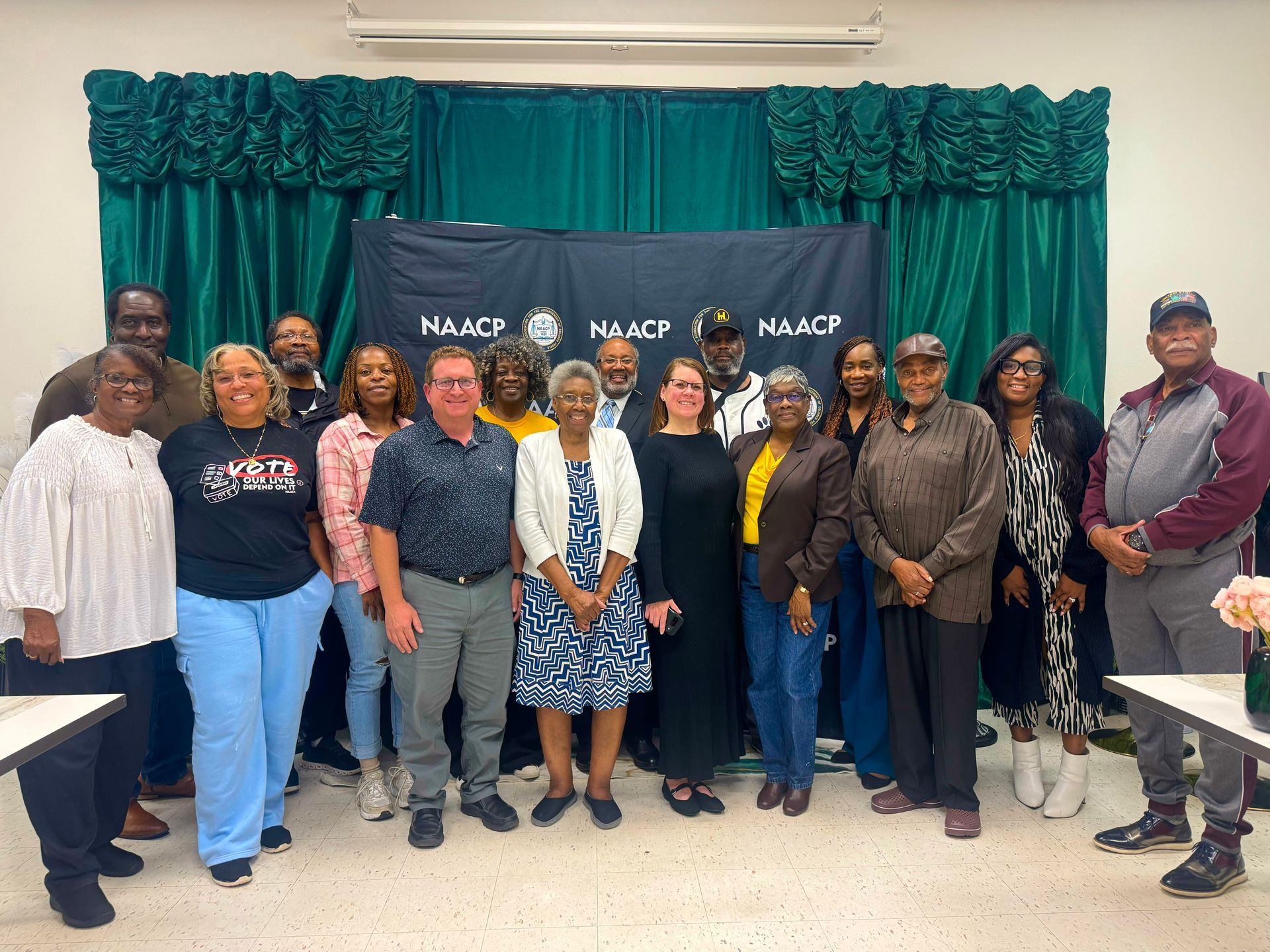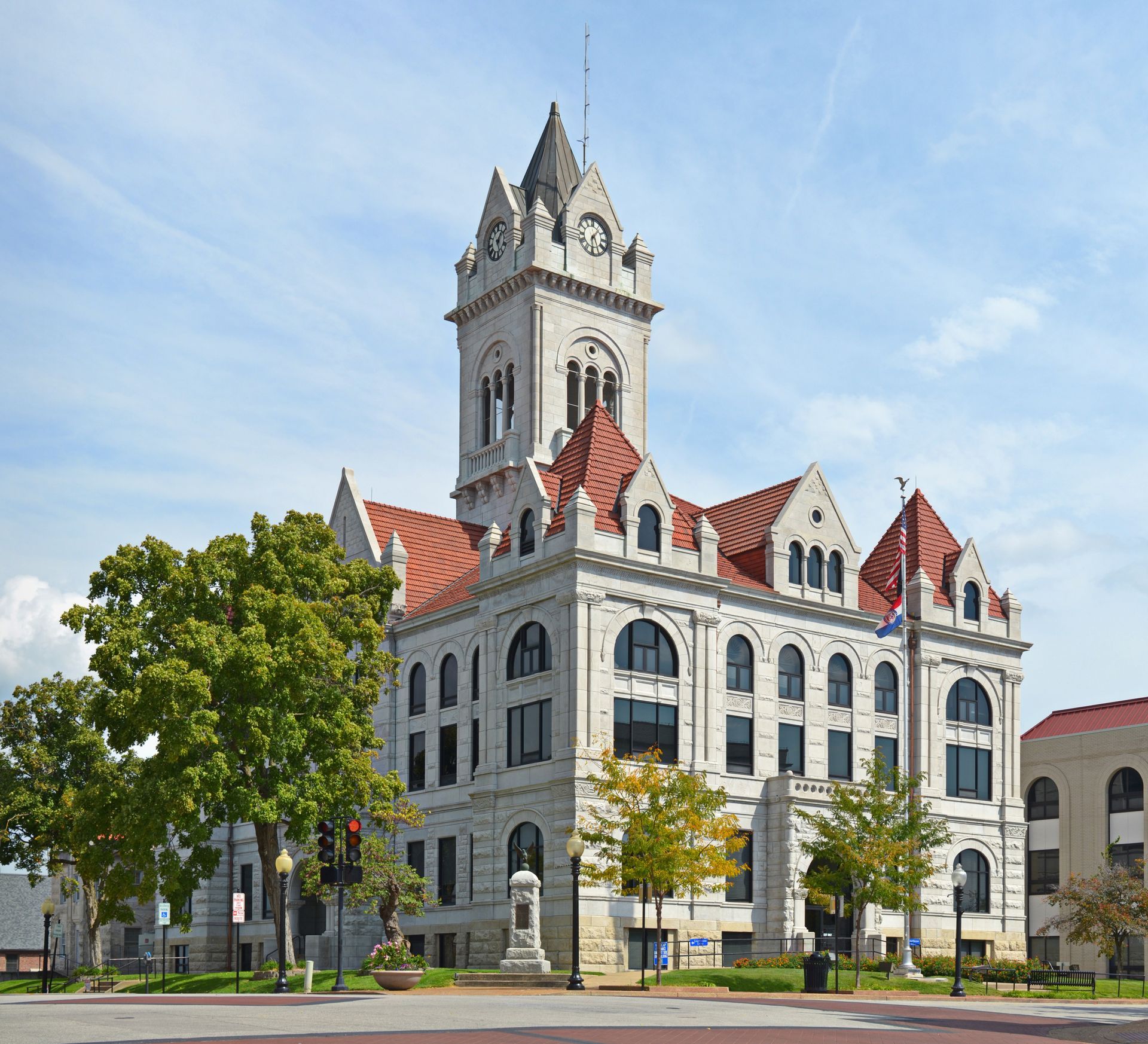2024 End of Session Report
Overview
It was a record setting year for the Missouri General Assembly. For the first time in modern history, there were zero conference committee reports created. This includes no conference committees on the budget. This means the House and Senate had to just take up and pass bills as they came from the opposite chamber. The longest filibuster record was set by the Freedom Caucus at 41 hours, then promptly broken by the Democratic Caucus with a 50-hour filibuster. There was a record low number of bills passed with only 27 non-budget measures making it through the process. Unlike previous years, most of these 27 bills and joint resolutions were not comprehensive/omnibus bills, but were fairly limited single issue bills. Only a few of the bills contained multiple provisions, and none of them were changed dramatically in the last week of the session. This means that Capitol watchers have the full final versions of the bills already, unlike most years when we have to wait for a week or so to see the fully printed final version of the bills.
Criminal courts reform
We were tracking a variety of bills that contained criminal court provisions this year. Many of them contained duplicate provisions and had expanded to over 300 pages by the end of the Session. Only 1 bill made it through the process. This bill contains many of the provisions that were vetoed in SB189 in 2023. The bill is SB754 and it was passed on the last day of session. The bill contains both good and bad provisions.
Good
- Raises the age for certification of juveniles as adults from 12 to 14 for offenses that are not dangerous felonies.
- This measure is a small but important change. We are hopeful in future years to also raise the age for mandatory certification hearings from 12 to 14.
- Prohibits an arrest warrant from being issued for failure to appear on a traffic violation.
- This measure should reduce the number of arrests and searches of people who have not committed crimes. Currently, the police are able to claim probable cause if they think you may have a warrant and can stop a vehicle where the driver is wanted for failure to appear and search the vehicle looking for additional violations. Anything that reduces the number of people who are forced into the criminal courts is an improvement.
- Creates a statewide Conviction Integrity Review Unit to make recommendations to prosecutors to file motions to vacate wrongful convictions.
- The Unit will have staff and resources to investigate any suspected wrongful conviction. It is run by the Office of Prosecutorial Services, not the Attorney General, and may take applications from convicted individuals for a small fee which shall be waived if they can show indigence. While this Unit is not as robust as those in other states, it is a start and is the first method for investigating wrongful convictions of any crime and not just those with death penalty convictions. The results of the Unit’s investigation will be given to the local prosecuting attorney who may file a motion to vacate the judgment.
- Removes separate provisions in the law related to crack cocaine so that the penalties and amounts are the same for all distribution or possession charges as powder cocaine.
- This is a simple and necessary fix that will have a huge impact on people struggling with drug addiction. The current law treats powder and crack cocaine differently even though they have identical rates of addiction and chemical impact on the brain. The “war on drugs” is actually a war on black and brown people and the poor. This is a small but significant step toward ending that war.
- Expands the kinds of criminal records that can be expunged (erased).
- While we were not successful this year in passing Clean Slate legislation, we were successful in expanding the number of criminal records that can be expunged and reducing the amount of time a person must wait before seeking expungement. Last year, the fee for filing an expungement petition was eliminated. Both of these provisions work toward making expungement a more realistic option while we continue to press for automatic expungement under Clean Slate.
Bad
- Allows a juvenile who participated in a killing but was charged with Second Degree Murder to be eligible for life without the possibility of parole.
- This provision is likely unconstitutional, but is something that a family whose daughter was killed by a 15 year old have been pushing for. It is very likely to be challenged soon and is unlikely to have any actual effect on future sentencing.
- Creates several new offenses for actions that were already crimes.
- This happens every year. A bill will be introduced to create a new specific crime where a current general crime could otherwise be used. This includes things like evading arrest in a motor vehicle, harming a police animal, reckless discharge of a weapon, and distribution of fentanyl. In general, we oppose creating new crimes because it provides prosecutors with a means to inflate the number of charges based on a single act.
- Changes the definition of “persistent offender” so that a person who has been convicted of a dangerous felony prior to their current charges can be considered a persistent offender.
- This language is bad because it allows a person with a single prior conviction to be considered a persistent offender. Persistent offenders are required to serve a larger percentage of their sentence and may be subject to longer minimum sentences.
Overall, the good in this bill will impact a larger number of people than the bad. It is unfortunate that we are unable to pass good provisions without including some of the bad ones, but that is the current political atmosphere of our State. We will continue pushing forward in the future and continue to make steady progress however small each piece may be.
Another measure that is indirectly related to criminal courts is heading to the ballot this year.
SJR71 would authorize court fees to pay for prosecutors’ and sheriffs’ salaries, benefits, and retirement. There is a problem with the sheriffs’ and prosecutors’ pension systems, but this is not the way to fix them. There is no limit on the amount of fees or requirement for the legislature to authorize the fees, which is the current law. This opens the door to misuse and abuse of court fees which amount to a financial barrier to anyone attempting to defend themselves against criminal charges. Even something as minor as a traffic ticket is subject to criminal court fees on top of any fine for the violation. We need to strongly oppose this measure and encourage people to VOTE NO in November..
voting rights
After months of hard work and nail-biting, the proposal to end majority rule by citizen initiative petition died this year. SJR74 was sent back to the House after a 50+ hour filibuster by the Democratic caucus with a request to pass the version without ballot candy. The House failed to do so and instead tried some political posturing. The Senate adjourned for the year without taking further action on the bill and the House chose not to pass the clean version. This means changes to the way we amend the Constitution will not be on the ballot this year.
Unfortunately, a different SJR with some harmful provisions did get sent to the ballot.
SJR78 contains the misleading and potentially harmful “only citizens” language, requires paper or “mechanical” ballots, and prohibits rank choice or approval voting unless it was implemented prior to the November election. It is likely the “only citizens” language will impact future attempts to protect the right to vote. We are also concerned that the paper ballot requirement would disenfranchise voters with visual impairment. We will be encouraging people to VOTE NO on this measure in November.
Other proposals we had been supporting, including poll worker protections, did not make it through the process. We are hopeful that we will have more success next year and will continue to push for provisions that make our election workers safe and our elections free and fair.
education
There were many bills this year that would have made the racial disparities and racist environment in schools worse. These included provisions that blatantly prohibit DEI training and allow student organizations to discriminate while receiving state resources and funding. None of these provisions made it through the process. This was due in large part to the work of President Chapel, Olivia Pener, and other NAACP officers who took the time to come to Jefferson City to talk to legislators and testify in committee. Continued regular contact with elected officials is necessary to prevent the passage of harmful legislation.
One bill did pass related to education that could have a major impact on public education in Missouri. The bill is
SB727, and it contains a number of provisions that impact public education. In large part the bill would allow for the expansion of the “Education Savings Account” program which gives tax credits to certain families who pay tuition to enroll their children in a private school, and increase the number of charter schools in Missouri. The bill also contains a significant pay increase for public school teachers, but has no way of funding the increase in the future. The full impact of the bill is unlikely to be seen for a couple of years, but it is expected to be harmful. We anticipate future legislation to either roll back provisions from the bill or create a new way of calculating the amount of state funding a public school receives. We will be watching closely how this bill impacts schools that have been historically underfunded and have a high percentage of black and brown students.
Another piece of legislation that could have impacts on public school systems is HB2111. The new law expands a State Auditor’s power to audit local political subdivisions, including School Districts. The bill does not cause problems from its plain language, but could be abused by an unscrupulous State Auditor. The concern is an Auditor may choose to start deciding what an appropriate use of funds may be. This could mean negative audit reports for school districts that provide DEI professional development training to teachers and staff or for student activities that the Auditor does not think are necessary. Again, this is unlikely to happen, but we should be prepared to sue or intervene should the Auditor try to exceed their authority.
Economic development
Many of our NAACP members and leaders are also entrepreneurs. Owning a business is a path to financial independence and generational wealth, and it is important to stay up to date with the laws and regulations related to small business ownership.
Taxation will change pretty dramatically for people who file as an S-Corp.
HB1912 makes several changes to how state taxes will be filed for non-resident and resident S-Corp owners. You should be sure to ask your tax professional how these new rules will affect your 2024 tax filing.
A major piece of legislation,
SB894, related to economic development and business ownership passed this year. The bill creates the Office of Entrepreneurship to assist people starting and growing businesses with less than 10 employees. The bill also creates the Right to Start Act which encourages the State and local governments to award contracts to new businesses. Both provisions include strong equity statements and particularly require assistance and benefits for certified “Minority Business Enterprises.” While not specifically for small businesses,
SB802 is another bill that deals with investment in new and growing businesses in Missouri. It includes, among other things, a provision which allows businesses to operate with limited regulation for a short period of time if they can show they are offering an innovative product or service. Both of these bills are attempting to support and encourage business development in Missouri by Missourians.
On a related note, HB2062 (discussed in detail below) deals primarily with Real Property from a housing and land use perspective. However, it also contains a provision that will make it easier to preserve historic properties. The language allows non-profit organizations to take advantage of tax credits and allows for residential property owners to get tax credits to restore their property even if they are not currently living in it. Both of these provisions have the potential to increase the number of black history sites that are maintained and promoted in Missouri.
veterans
Two bills passed this year focused on veterans,
HB1495 and
SB912. Both of these bills contain language that requires the Missouri Veterans Commission to implement measures to prevent suicide. This includes treatment, outreach, and financial assistance as the Commission deems necessary. The larger bill, SB912, also includes two new medals of honor, license plate designations, tax deductions, tuition assistance program, and a few other miscellaneous provisions. These provisions are designed to honor and assist veterans, but their practical impact is unknown.
housing
Housing availability and affordability are an ongoing problem in America. People are struggling to find a place to live or to stay in their home as rents are increased and salaries don’t keep up. There were a couple of bills that passed this year that are likely to increase this problem.
An omnibus “Real Property” bill was passed with several provisions relating to housing,
HB2062. The bill is in large part about land banks and how they operate. These provisions may be helpful for areas with strong land banks already formed, but it is at best an indirect impact on housing. The most concerning provisions of the bill relate to the rights of tenants. The bill creates a new process for a landlord to immediately remove someone from their property if they are not legally entitled to be there. This would include tenants whose lease has expired and people who are residing with the tenant but aren’t listed on the lease. There is no requirement other than the person’s presence on the property before the court can issue an ex parte order immediately removing and preventing that person from re-entering the property. This provision is ripe for abuse. The other concerning provision prohibits local government entities from establishing a moratorium on evictions. Most municipalities in America prohibited landlords from evicting tenants during 2020 and 2021 because of the impact COVID had on both the economy and public health. The new law would require action from the legislature before a moratorium could be put in place. The same provision was also in
SB895 as a stand-alone bill.
HEALTH
State Representative Chantelle Nickson-Clark introduced
HB2875 which would require MO Healthnet to cover breast cancer and cervical cancer screenings even if the provider is not in the MO Healthnet provider network. This language was included in
SB1359 which is an omnibus bill with a variety of provisions related to insurance and banking. This language is especially important as the legislation which prohibits any state money from going to Planned Parenthood also passed this year. Cancer screenings are incredibly important to survival rates, and this language will make those screenings more accessible for folks of all income levels.
GOOD BILLS THAT DID NOT PASS
There were a few bills of note which we supported that didn’t make it across the line this year. We expect these bills or ones similar to be introduced again next year. It can be frustrating to watch a bill fail to pass year after year, but it’s important to remember that most bills introduced in Missouri don’t pass. Of the 2,603 bills and resolutions passed this year, only 45 made it through the legislative process in 2024. We will continue to advocate for good legislation and thank the sponsors for their continued efforts.
- HB1446 and HB2654 Provides Coverage and Funding for Doula Services - These bills require doula services to be covered as part of maternity care by private insurance and Mo Healthnet respectively.
- HB1900 CROWN Act - Prohibits racial discrimination based on protective hairstyles in elementary and secondary schools.
- SB890 Missing and Murdered African American Women Task Force - Creates a task force to audit local law enforcement policies and submit a report regarding policies and measures to address violence against African American women and girls to the Governor and General Assembly on or before December 31st of each year.
- SB1412 Ebony Alert System - Creates the Ebony Alert System, which is designed to aid in the identification and location of abducted or missing Black youth and young adults who are reasonably believed to be the victim of a kidnapping or trafficking offense as provided in the act.
- SB1446 Curriculum Framework on the Dehumanization of Marginalized Groups - Inspired by the work of the family of Celia Newsom, this bill requires the Department of Elementary and Secondary Education to develop a framework for teaching the history of dehumanization of marginalized groups in Missouri, the United States, and the World.
Tracking ListS
- Full List of Bills That Passed: https://govwatch.net/report/19q6z6Pqa7
RECENT ARTICLES




